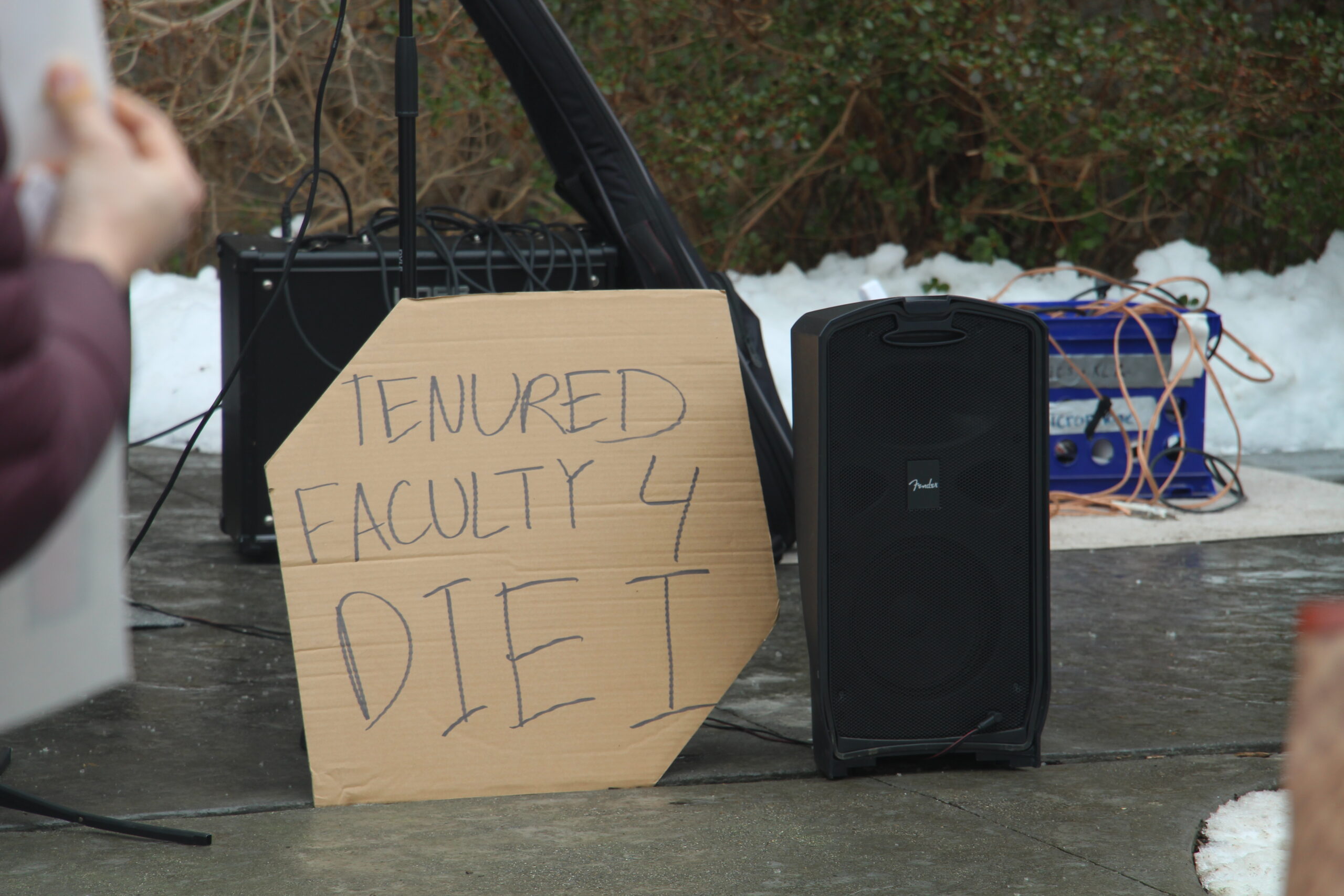Last semester, I made a nightly habit of sitting before the TV with the three women who made up my host family in Managua, all of us rocking in wooden chairs. Sometimes we practiced this ritual in near silence, drained and locked on whatever was on cable, but we typically used the time to catch up on the day’s events and fresh neighborhood gossip. While we mostly watched novelas or an over-the-top Judge Judy-type program titled Caso Cerrado, my family made occasional but generous efforts to dose me with U.S. news by flipping to CNN’s Spanish-language international outlet, cutely dubbed CNÑ (and no, the abbreviation does not line up with any translation of “Cable News Network”). On one of such nights, CNÑ aired a translated documentary about the Trump family. Though I have since been unable to find the material online, what I saw at the time illustrated, via personal testimony, narration and photo montage, how then-candidate Trump had raised such hardworking, high-powered, generally wonderful children. My family, alarmed, questioned why the humble yet inspirational father figure presented differed so vastly from the demagogue with whom they’d been familiarized.
My host family was surprised, but they are not naive. They’d seen propaganda before. Nicaragua’s President Daniel Ortega, currently in his third consecutive and fourth overall term, owns most of the national news stations and papers. The nightly news frequently shows interviews with civilians expressing their gratitude for Ortega in his sponsorship of the latest municipal gathering or infrastructural achievement. This journalism presents factual events and supposedly true testimonies, but is it objective?
On the Media’s Brooke Gladstone once answered a related question by stating simply, “No.” Gladstone, however, was not responding to an inquiry about any particular objectivity, but instead had been asked: “Is objectivity even possible?”
The question of objectivity is tired. Many times it’s been posed, and many times it’s been answered. And yet, we repeatedly hear the concept cited as not only a guiding principle but an absolute necessity of good journalism.
As many readers likely know, Lewis Wallace was recently fired from Marketplace over his Medium post “Objectivity is dead, and I’m okay with it,” in which he argues that truthfulness is not dependent upon neutrality and that it should be a journalistic priority to include diverse and marginalized perspectives. He has since added another post called “I was fired from my journalism job ten days into Trump,” to which Mark Lasswell, former editorial features editor at The Wall Street Journal, can likely relate. While Wallace clashed with his superiors over public expression, Lasswell’s conflicts at the Journal unfolded in the internal sphere; according to The Atlantic, editorial page director Paul Gigot “blocked Lasswell from publishing op-eds critical of Trump’s business practices and which raised questions about his alleged ties to Mafia figures” in June 2016. Lasswell was then offered a leave of absence, supposedly to work on his book, and was fired upon inquiring about his return post-election.
A pro-objectivity argument might present Lasswell as a pariah of the post-truth age, a committed defender of fact regardless of political agenda and thus, the antithesis to Wallace. But Lasswell edited the Journal’s opinion pages, which The Atlantic identifies as “a showcase for the intra-right divide over Trump.” He may have been fired by a biased editor, but it wasn’t for his own impartiality.
The truth is, as Wallace puts it in the first of his two mentioned posts, “it matters who is making editorial decisions.” It should not be a revelation to note that different media outlets present the same facts to different effects, but the conflation of truthfulness with objectivity refuses to go away. The documentary I saw on CNÑ was truthful; it highlighted where the Trump children went to school, where they held summer jobs, how they began to raise families of their own; and it has not, to my knowledge, been proven in any way false. But it was not objective. It demonstrated a clear attempt to humanize Trump, an endeavor to squish him into the wholesome family-man mold that U.S. politicians find so useful.
Could anything have made the documentary objective? If the directors had spliced in a segment about Ivana’s rape allegations against her ex-husband or a clip of Trump saying “perhaps [he’d] be dating” Ivanka, would that have done it? In the mainstream, the premise of “showing both sides” prevails as the key to objectivity, even if doing so means recognizing violations of civil rights, racist rhetoric and blatant lies as legitimate, even long after Fox News adulterated the phrase “fair and balanced.” And implicit in “showing both sides” is the notion that perceptions of any given issue fall into the neat organization of binary opposition. While no, not all news stories are presented this way, most are, and while yes, many issues can be divided into two large and generalized camps, the disputes within them and the dissenters left on the margins matter. There are never just two sides.
And just as there are never just two sides, there is never a single correct approach to a story. Objective facts of course exist, and naturally we should report them as such. But beyond that, we should strive to report the most honest version of the truth as we see it, and as individuals we will not always see it the same way. Denouncing “the View from Nowhere,” Conor Friedersdorf asserts that journalists should claim authority on the basis of being informed, not on an absence of opinion. He warns media organizations: “To build your credibility on viewlessness is to concede, every time an employee of yours is shown to be a sentient, opinionated person, that your credibility has taken a hit.”
I think we should commit and abandon the false pretense of objectivity, and instead press forward with the informed truth. I’m drawn to Emile Habiby’s construction of the Pessoptimist, the protagonist’s surname and essence in Habiby’s novel The Secret Life of Saeed the Pessoptimist, characterized by Anijuli Raza Kolb as an oxymoronic figure who, stripped of family, human rights and national belonging, experiences “a radical, deranging solitude” that leaves him “babbling toward justice—an insistence on being, and making a record of one’s being over time…embodying the kind of dummy Theodor Adorno accused Walter Benjamin of being, perhaps admiringly: an astonished presenter of mere fact.”
Saeed the Pessoptimist thus appears a tragic fool, admirable and pitiable for his insistence on continuing. But I like to think that in the context of journalism, to persist is the responsible path, though perhaps that does not exclude it from being the foolish one.
The words “mere fact” ring of objectivity-related discourse, but note that Adorno calls Benjamin, and by extension Kolb calls the Pessoptimist, its “astonished presenter.” The reaction, informed by subjectivity, is recognized, but it does not change reality.
All people have subjective experiences of reality and therefore opinions, and all publications, for better or worse, are run by people. I, along with a handful of fellow students, run this one. We all have opinions. They are not all the same. They are all capable of affecting what runs in this paper. But they are not, I assure you, preventing us from printing the truth. •










